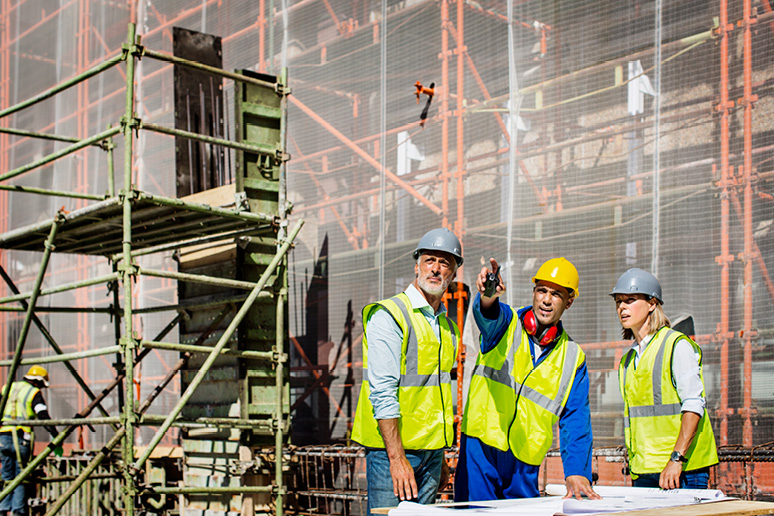Construction law is essentially what you think it would be: it pertains to the construction of commercial and residential buildings as well as other types of structures, including highways and utilities. It encompasses federal, state, and local regulations, which can all impact one project, whether it is a skyscraper in New York, an apartment building in Atlanta, or a new water park in Wisconsin.
Any time you want to build something new or renovate something old, you are going to have to pay close attention to the law. The type of project and your part in it will dictate how much construction law you need to know and stick to. If you are a homeowner doing renovations on your house, then you may only need to know the basics, such as which county ordinances and state laws apply, while the contractor you hire knows the rest.
If you are or want to become a developer or contractor yourself, then you need to be in tune with a wide-range of local, state, and federal laws that dictate what you can do, how you can do it, and when.
Regulations within Construction Law
Local and state laws typically govern the specific land or structure in question. If you wish to build a home in Seattle, Washington, then you must follow all land use, zoning, and permitting laws in King County. You must also adhere to the state’s building code.
Federal construction laws are often over-arching regulations for the project, such as environmental regulations or workers’ health and safety. There are also federal regulations that apply to federal buildings and projects, including the use of federally recognized international codes like the International Building Code (IBC), International Fire Code (IFC), International Plumbing Code (IPC), International Mechanical Code (IMC), and the International Energy Conservation Code (IECC), published by the International Code Council (ICC).
Construction law also includes many other types of regulations, including those pertaining to:
- Workers’ rights
- Workplace health and safety
- Workers’ compensation
- Disability
- Personal injury and wrongful death
- Hours and wages
- Zoning and land use
- Environmental regulations
- Building materials
- Building codes
- Noise
Many construction laws are about protecting people: protecting the construction workers, protecting individuals in and around the construction site, and protecting the people who will one day live or work in the building. Many of the laws attempt to be proactive, like building codes that strive to create safe structures. Others are effective once something goes wrong, like each state’s workers’ compensation system.
What Construction Lawyers Do
Whether you are a homeowner, commercial property owner, general contractor, sub-contractor, engineer, architect, supplier, or other party within a construction project, you may need a construction lawyer at some point.
Licensing and Other Administrative Issues
Contractors and other construction businesses must deal with local and state regulatory agencies, or if they worked on a federal project, with federal agencies. A typical issue would be obtaining and maintaining appropriate licenses. If you are a professional experiencing a licensing or regulatory issue, you should work with a construction lawyer who is well versed in administrative law.
Negotiating and Drafting Contracts
There are many contractual relationships going on during a construction project: the property owner and a contractor; the contractor and their subcontractors; the contractor and subcontractors and their employees. Construction lawyers represent parties during the negotiation and drafting of construction contracts.
Parties involved in large-scale and commercial projects typically need to negotiate bonds and warranties, the scope of work, possible changes to work, potential delays, responsibility and indemnification for third parties, and more. Construction contracts need to define each parties’ rights and duties, as well as their options when the project does not progress as planned or a dispute arises in the future.
Small home renovation projects often rely on general contractor’s pre-drafted contracts. Homeowners may not need a construction lawyer for a limited project, though they certainly can hire an attorney to review a contract before they officially hire someone. Instead, homeowners typically meet with construction lawyers if a dispute arises during or after the project.
Resolving Disputes
Construction disputes can arise when one party refuses to pay another or accuses the other of negligent, subpar, and defective work. Construction attorneys represent individuals and businesses in attempts to resolve disputes. Many construction lawyers are experienced in resolving disputes through alternative dispute resolution (ADR) methods, like mediation and arbitration, and through litigation. If there is a dispute, contract law in relation to construction is going to govern the resolution of the law. Many states have construction-specific laws since construction disputes have arisen since the first day people began to hire others to build their homes and offices.
 By Victoria Langley,
By Victoria Langley, 

